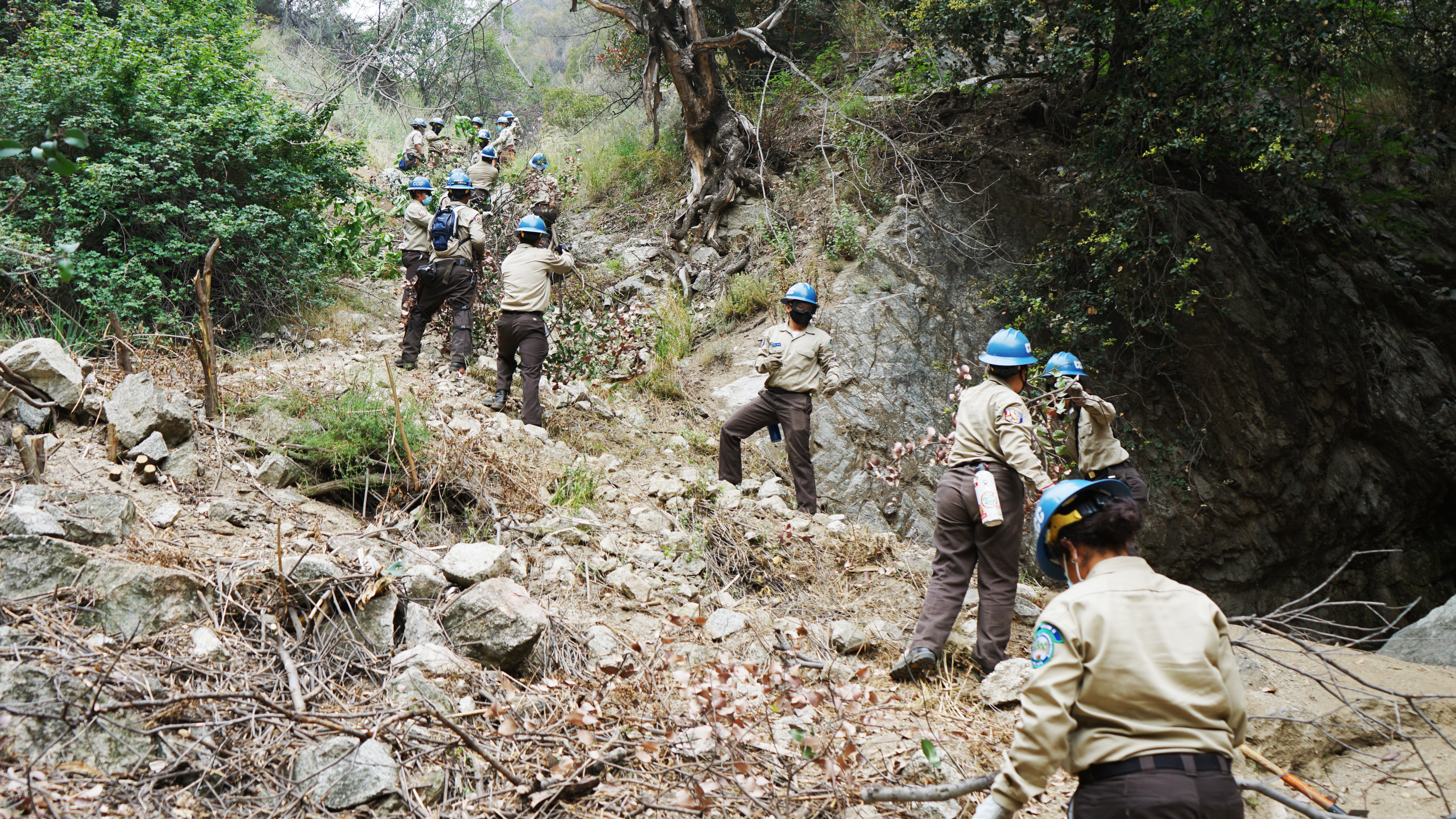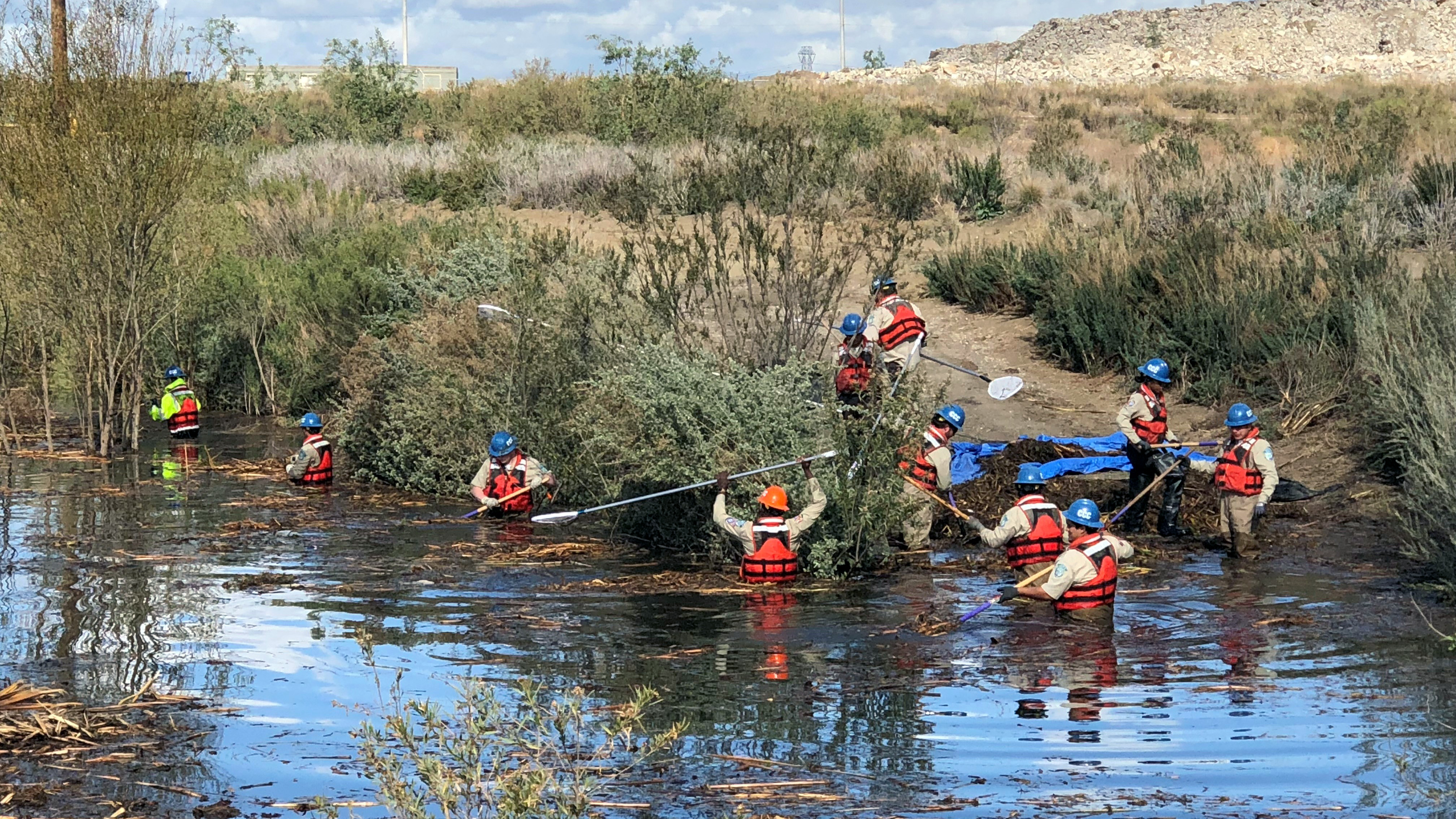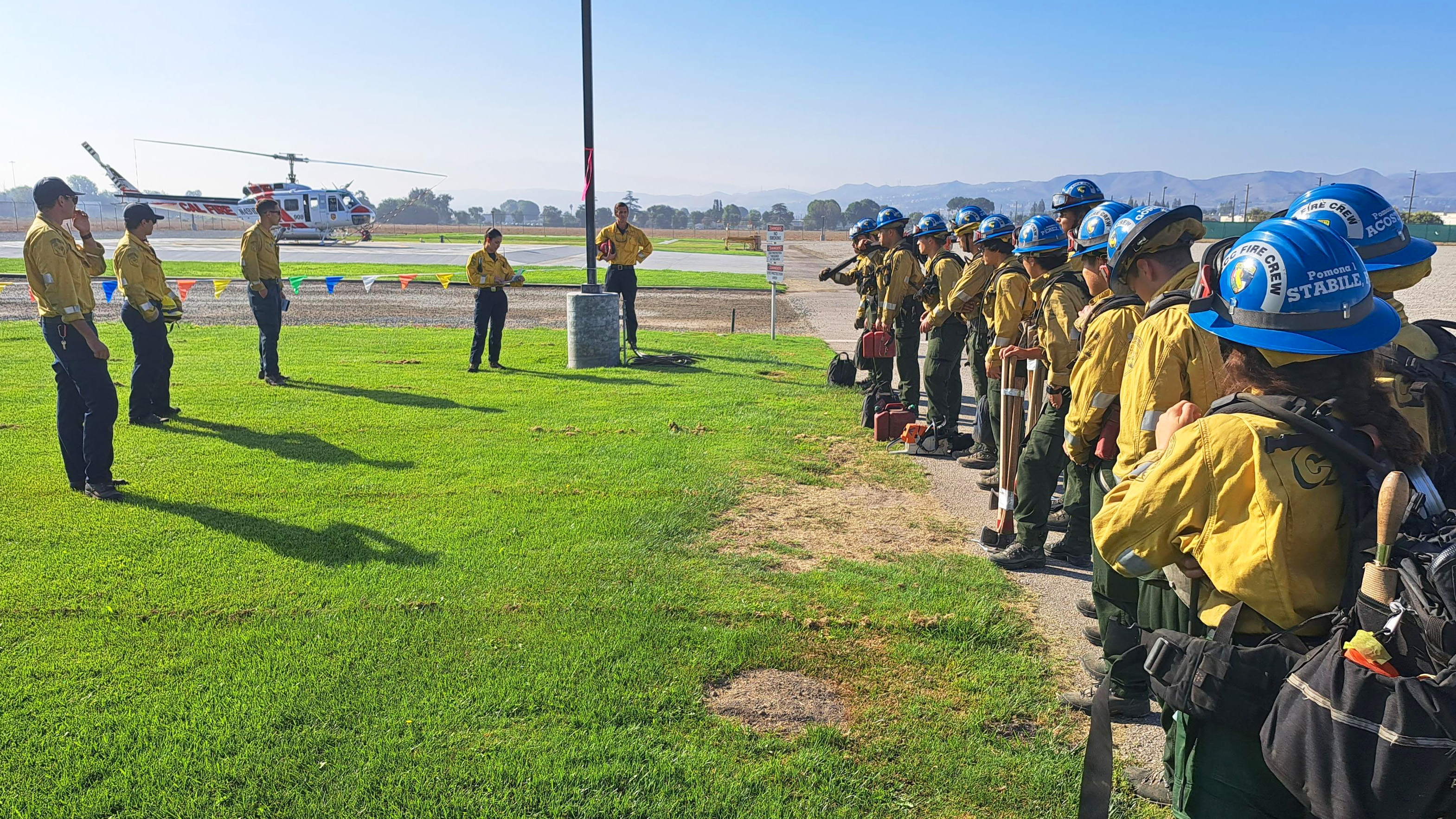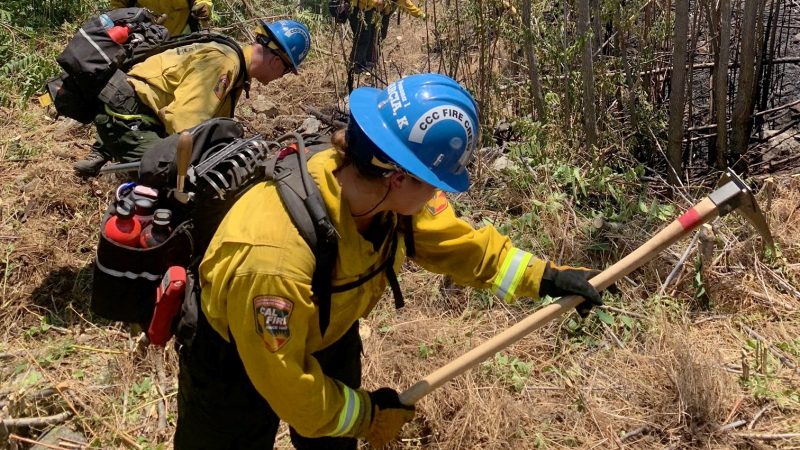Pomona Center with Los Angeles Center
The Pomona Center in Los Angeles County was established in 1981 and is located on the Cal Poly Pomona Campus South. The center opened as a residential center, then became a nonresidential facility where 80 Corpsmembers commute to from the Pomona area.
Its service area reaches the Pomona Valley, San Gabriel Valley and San Gabriel Mountains, as well as Orange County. Agencies that frequently contract the Pomona Center for environmental projects include California State Parks, Caltrans, the U.S. Forest Service, Orange County, and the cities of Pomona, Pasadena, Azusa, Glendora, and Monrovia.
The Pomona Center is located between the cities of Pomona, Diamond Bar, and Walnut on the Cal Poly Pomona Campus South. The center serves portions of Los Angeles, Orange, Riverside, and San Bernardino counties as well as the Angeles National Forest. The center is twenty minutes away from the Ontario International Airport, and can easily be accessed via the 10, 57, 71, and 60 freeways.
The Pomona Center operates a satellite campus in Los Angeles on Main Street near Vernon Avenue. The Los Angeles Satellite has 45 non-residential Corpsmembers who commute to the facility each morning and then depart to areas in western Los Angeles County to perform natural resource work.
3530 W. Pomona Blvd. Building 3
Pomona, CA 91768
909-594-4206
4366 South Main Street
Los Angeles, CA 90037
(213) 744-2254
Life at the Pomona Center

Pomona Center Corpsmembers chain felled limbs and brush up a steep incline in Bailey Canyon Wilderness Park in Sierra Madre, CA as part of a fuel reduction project.
The Pomona Center is a nonresidential center with a diverse population of young adults from the surrounding areas of Los Angeles and San Bernardino counties. Corpsmembers commute to work daily. During a normal work week, Corpsmembers work a 10-hour day Monday through Thursday (excluding spikes). Spikes are projects where the worksite is located in areas too remote for a daily commute, therefore Corpsmembers must camp – often in tents – at a nearby location.
On an average work-day, roll call is at 6:15 a.m. Crews then depart from the center to work on local projects, and return at 4:30 p.m. to complete tasks assigned to them, such as maintenance of the center, tools, and CCC vehicles. After work, Corpsmembers often participate in classes focusing on career development and education goals.
Since the Pomona Center is nonresidential, Corpsmembers are free to do on weekends what they please. However, they often volunteer for community events and projects. Recreational activities available at or near the center include basketball, volleyball, horseshoes, and hiking.
The Corpsmember Advisory Board (CAB) is a leadership opportunity for Corpsmembers to participate in the governing of their CCC community. CAB members learn how to organize and present their concerns, opinions, and advice in constructive and positive ways. The CAB board is involved in community service projects, including volunteering with organizations such as the Santa Ana Zoo, Planet Rehab, CycLAvia and Bike SGV, collecting food for the homeless, operating a Corpsmember snack shack, and recycling.
Projects

Pomona Crew 3 conducts invasive species removal and pond cleanup at the Chino Creek Wetlands and Educational Park.
Corpsmembers participate in a variety of conservation projects sponsored by federal, state, county, and city agencies as well as nonprofit organizations. The Pomona Center works with major public land agencies such as the U.S. Forest Service, CAL FIRE, the National Park Service, California State Parks, the Bureau of Land Management, the Department of Water Resources, and Caltrans. In addition to these larger sponsors, the Pomona Center also works with agencies such as Orange County, Orange County Parks, the City of Diamond Bar, San Gabriel Mountains Rivers Conservancy, and various school districts. These work sponsors provide many of the project types that are the backbone of the CCC, such as trail construction in backcountry locations, habitat restoration, and watershed restoration, as well as fire hazard reduction in State Responsibility Areas.
Crews may participate in “spikes,” working and camping away from the center for a week or more to tackle more distant projects. For example, Pomona crews occasionally work on a trail projects at Torrey Pines State Natural Reserve on the San Diego coast more than 100 miles away.
Wildland Firefighting: The CCC Pomona Center operates a wildland firefighting hand crew in partnership with CAL FIRE. Corpsmembers receive training and hands-on experience working with CAL FIRE captains responding to wildfires year-round locally and across the state. The center is collaborating with the CAL FIRE San Bernardino (BDU) unit to operate the crew. Wildland hand crews help build fire line with hand tools and conduct mop-up work.
Forestry Corps: The Pomona Center operates a CCC Forestry Corps crew committed to improving California’s forest health. Corpsmembers are trained to remove and reduce overgrown and dead vegetation posing a potential fire risk. The Forestry Corps may also assist in tree planting, tree felling, and other arborist work and training.
Education and Training

Corpsmembers with the Pomona 1 fire crew listen to CAL FIRE staff give instructions for how to operate near a CAL FIRE helicopter at the Prado Helitack base in Chino, CA.
All Corpsmembers at the Pomona Center are required to complete Corpsmember Orientation, Motivation, Education, and Training (COMET) and core training courses.
Specialized trainings and certifications available at the Pomona Center include:
- Cal-OSHA 10-Hour Safety Training for Construction
- Caltrans’ Internship Programs
- Chain Saw Training and Certification
- Chipper Safety & Training
- First Aid & CPR
- Flora and Fauna Identification
- Hazardous Waste Operations and Emergency Response (HAZWOPER) 40-Hour Training
- Power Tools Safety and Operation
- Safety Stand Down
- ServSafe Food Handler Certification
- Trail Construction and Maintenance
- Tree Climbing Safety
Leadership is essential to the CCC. Corpsmembers at the Pomona Center have the opportunity to promote to a Specialist or a Crew Leader. In these positions, Corpsmembers with leadership training help supervise other Corpsmembers and specific projects. Crewleaders and Specialists receive higher pay and can stay in the CCC for an additional year.


